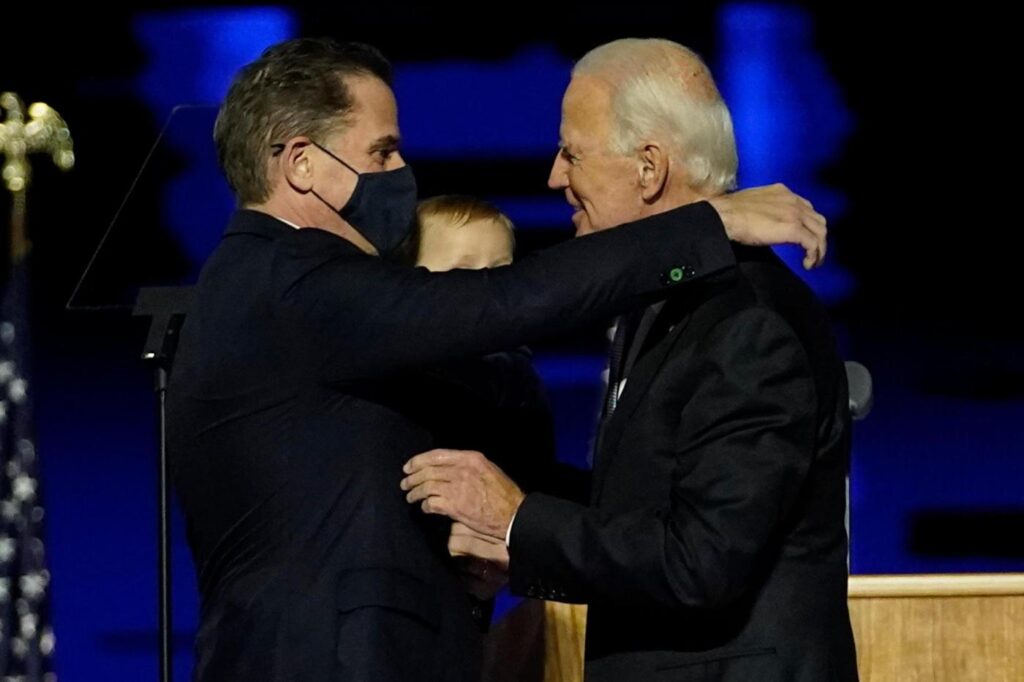
Last week, the New York Times reported that Hunter Biden has been the subject of a federal criminal investigation since 2018; that he has recently “paid off a significant tax liability,” which “could make it harder for prosecutors to win a conviction or long sentence”; and that a grand jury is examining his “international business dealings,” including possible “money laundering” and violations of rules governing “foreign lobbying.”
In paragraph 25 of the story, the paper reported that its sources have authenticated emails found on a laptop that belonged to Hunter Biden.
The news broke just in time for the New York Times to win an Academy Award for its remake of “Gaslight.”
No, you’re not losing your mind. You remember, correctly, that the New York Post reported on the authenticated contents of Hunter Biden’s laptop in October 2020, just weeks before the presidential election, and the New York Times was among the powerful institutions that ignored, belittled or suppressed the story.
The Post’s reporting carefully explained how the laptop computer that belonged to Hunter Biden had been abandoned in a Delaware computer repair shop in April 2019, and how the contents of the hard drive had come into their hands: the repair shop owner said he alerted federal authorities about the laptop; the FBI obtained a subpoena and seized the computer and hard drive in December 2019; the shop owner had made a copy of the hard drive before turning over the computer to the FBI; he later gave the copy to former New Mayor Rudy Giuliani’s lawyer; and Giuliani gave it to the Post.
The laptop contained emails between Hunter Biden, his business partners and others. The Post authenticated the emails by contacting the people who sent or received them.
What was particularly newsworthy, weeks before the election, is that the correspondence contradicted presidential candidate Joe Biden’s claim that he had “never spoken to my son about his overseas business dealings.” The emails revealed that Hunter Biden apparently had been selling access to his father, who was vice president at the time.
“Dear Hunter,” reads one email from Vadym Pozharskyi, an advisor to the board of Ukrainian natural gas company Burisma, “thank you for inviting me to DC and giving an opportunity to meet your father and spent [sic] some time together.”
That email was sent in April 2015, after Hunter Biden had been on the board of Burisma for about a year at a salary that reportedly reached $50,000 per month. In an earlier email dated May 2014, Pozharskyi asked Hunter for “advice on how you could use your influence” to benefit the company.
From the public record, it appears that then-vice president Joe Biden took official action to help Burisma about eight months after the “thank you” email was sent to Hunter. The former VP has admitted that he pressured Ukraine’s president and prime minister to fire Prosecutor General Viktor Shokin, who has said he was planning to investigate Burisma with “interrogations and other crime-investigation procedures into all members of the executive board, including Hunter Biden.”
Neither Joe Biden nor Hunter Biden denied anything in the Post’s reporting. But five days after the story was published, a letter was released to the press signed by 51 former intelligence and national security professionals, including former CIA directors Leon Panetta, Michael Hayden and John Brennan, and former director of national intelligence James Clapper. The letter stated that the laptop “has the classic earmarks of a Russian information operation.” No proof was offered, no evidence was put forward. “We do not know if the emails…are genuine or not,” the signers declared, while asserting that they seemed “suspicious.”
Politico ignored the hedged language in the letter and posted a headline that read, “Hunter Biden story is Russian disinfo, dozens of former intel officials say.” That’s not quite what they said, but the headline was enthusiastically tweeted out by Biden allies. Biden himself used the letter to deflect from questions of influence peddling during a debate, when then-President Donald Trump mentioned Hunter’s laptop.
“There are 50 former national intelligence folks who said that what he’s accusing me of is a Russian plant. Five former heads of the CIA, both parties, say what he’s saying is a bunch of garbage. Nobody believes it except his good friend Rudy Giuliani,” Biden shouted.
Notice that he didn’t personally say the laptop was a Russian plant. But his non-denial denial was seen by millions of TV viewers, and the moderators quickly steered away from the topic. Voters hoping to find the facts online encountered a blank wall, as Twitter and Facebook had throttled the story. Twitter even locked the New York Post out of its account on a false charge of publishing “hacked” materials.
Related Articles
Sadly, selling out to unions is key to GOP success
Free Leonard Peltier
American political discourse is poisoned by social media and hatred
Suspending the gas tax easier than Newsom’s plan
Can Arnold and Jerry save the world?
That was before the election. After the election, Hunter Biden admitted that the laptop “certainly” could be his. Politico reported in September that the incriminating emails are “genuine,” including one from a Biden business partner that includes the line, “10 held by H for the big guy?” Hunter Biden’s then-business partner Tony Bobulinski, who was on that email, said the line referred to a 10% stake in the deal for Joe Biden, to be held by Hunter.
Now the New York Times has acknowledged that the emails are genuine, abandoning the earlier use of words such as “purported” and “unsubstantiated” to describe them.
Maybe that’s because Hunter Biden doesn’t need their protection any more. All the federal prosecutors work for his dad.
Write Susan at Susan@SusanShelley.com and follow her on Twitter @Susan_Shelley.
